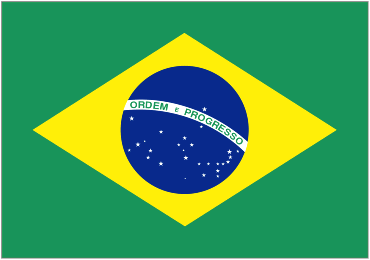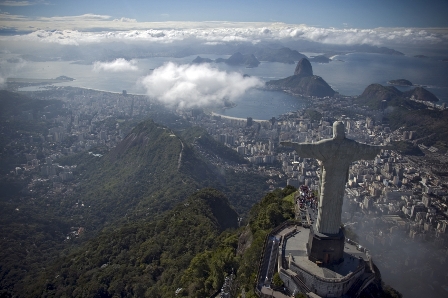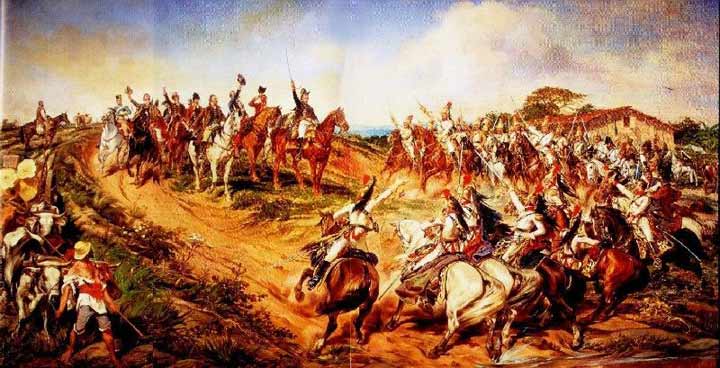September 7

Had the Pope’s arm slipped just an inch that day in 1494, the people of Brazil might be speaking Spanish right now. But the vertical line in the Treaty of Tordesillas that split the world outside Europe between Spain and Portugal held steady. The Pope alloted the easternmost chip of the Americas to Portugal, while Spain got the rest.

The history of Brazil would unfurl quite differently from the rest of its neighbors, and indeed from all of the Americas.
As Portuguese explorers pushed eastward that chip of South America soon became the largest colony on the continent. A land that contained vast jungles, endless rivers, and bountiful resources unimaginable to the Europeans back home in Portugal.
At the beginning of the 19th century, Napoleon of France invaded Portugal.
The King of Portugal, João VI, fled to Brazil and declared Rio de Janeiro the new capital of Portugal and its possessions. (Imagine King George III coming to America and declaring New York the capital of Great Britain.)
Napoleon then did an about face and turned his troops on Spain. (This wasn’t hard to do, since the French army was already in Spain. Spain had given Napoleon permission to cross through to attack Portugal.)
As a result, South America was a scene of pandemonium for the next two decades. The Spanish colonies refused to answer to the French and declared their autonomy one at a time. Even when Spain kicked the French out of their homeland, the people of South America maintained their independence, leading to several lengthy wars between Spain and its colonies. From Buenos Aires to Santiago to Lima and beyond, the wars were hard fought and costly, both in terms of resources and human lives.

The situation in Brazil was different. João VI fell in love with Brazil, and when the French were booted out of Portugal in 1815, he refused to come home. João made Brazil its own kingdom, an equal partner with Portugal. But the folks back home were not so thrilled about this. They demanded that the royal family return to Portugal and that Brazil be made a colony again.
Eventually the king was forced to return home to maintain order in Portugal; his 23 year-old son Pedro stayed behind and became regent of the Kingdom of Brazil.
Pedro defied orders to return to Lisbon. The Portuguese Parliament limited his powers, and attempted to make Brazil a subservient colony once again. Upon hearing this news at the bank of the Ipiranga River, Pedro famously declared: “Independência ou Morte!” (Independence or Death!) The Grito do Ipiranga (Shout of Ipiranga) took place on September 7, 1822.

Pedro was proclaimed Emperor of Brazil on October 12, his 24th birthday.
In 1831, Pedro abdicated the throne to his 5 year-old son, Pedro II and returned to Portugal. Pedro II ruled as Emperor for nearly 50 years. In 1889 the Emperorship was abolished and Brazil became a republic.

http://gosouthamerica.about.com/od/brahistory/qt/IndependenceDay.htm
